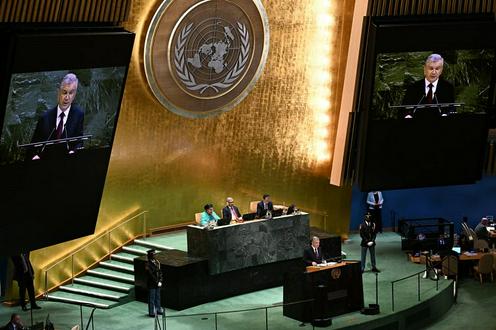Speaking at the 80th session of the UN General Assembly in New York, President of Uzbekistan Shavkat Mirziyoyev declared that in Central Asia the era of closed borders, unresolved disputes, and conflicts has passed. His speech was published on the presidential website.
The president recalled that eight years ago, from this very podium, he had announced a firm determination to transform Central Asia into a space of peace, good neighborliness, and partnership.
“And today, with deep satisfaction, we can state that we have achieved this strategic goal,” Mirziyoyev stressed.
According to him, in recent years the volume of mutual trade, investment, and transportation in the region has increased fivefold. Joint investment funds, cross-border trade and industrial cooperation zones have been established, and large infrastructure projects are being implemented. Consultative meetings of Central Asian heads of state have become an effective mechanism for deepening integration.
Mirziyoyev said that today a New Central Asia is emerging—one that, thanks to unity, stability, and a growing regional identity, has secured a stronger place in the international system as an independent actor.
Given this, he proposed a number of initiatives in cooperation with UN structures: for example, holding a forum on regional economic development under the auspices of ECOSOC and UNCTAD, creating an industrial hub for green technologies with UNIDO, and adopting programs on the rational use of water resources. He also suggested adopting a UN General Assembly resolution in support of Central Asian states’ efforts to strengthen regional partnership and economic integration.
The president highlighted the pressing issue of security, particularly in light of instability in Afghanistan. He called on the international community to support the Afghan people’s aspirations for peace and stability, stressing the importance of avoiding the country’s isolation. He also proposed a separate UN resolution on the development of international transport and energy corridors through Afghan territory.
Continuing on this theme, Mirziyoyev pointed to the effectiveness of implementing the UN Global Counter-Terrorism Strategy in Central Asia. At the same time, he proposed transforming the Regional Expert Council on Rehabilitation and Reintegration into an International Competence Center. He further announced Uzbekistan’s readiness to host a regional office of the UN Counter-Terrorism Office.
He also drew attention to climate change, emphasizing the negative impact of the Aral Sea’s desiccation. According to him, active work is underway to restore the region’s ecosystem: in recent years, salt-tolerant desert plants have been planted across 2 million hectares of the former seabed. By 2030, the plan is to cover up to 80 percent of the area with greenery.
To address the water crisis, Uzbekistan intends to host a World Forum on Water Conservation. The event is expected to recognize water scarcity as a serious threat to sustainable development and adopt a global “road map” for the introduction of innovative technologies.










